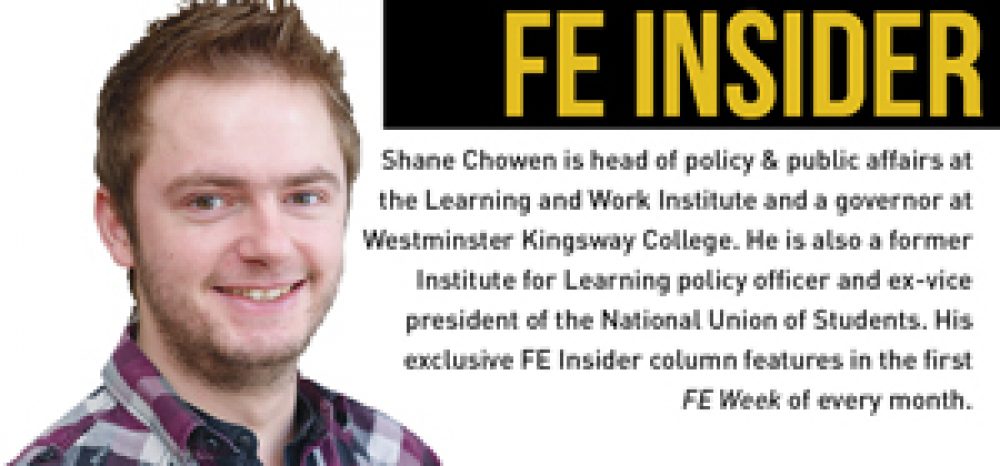A report published earlier this month by the House of Commons women and equalities committee found evidence of “unacceptable” bullying of transgender adult learners. FE Insider Shane Chowen looks at how the sector can respond to this.
In workplaces, schools, colleges, training providers and universities across the country this month, activities will be taking place to mark LGBT History Month.
This is a time when we mark the contribution that lesbian, gay, bisexual and trans (LGBT) people around the world to society and their community, often in the face of discrimination and persecution from their peers or their governments.
It’s also the time of year we make all sorts of pledges to make our learning institutions; our buildings, classrooms and curricula, not just safe spaces for LGBT people, but places where prejudice and discrimination is challenged and we provide students with the skills to challenge homophobia, biphobia and transphobia at work and in their every-day lives.
I don’t believe that we lack any ambition in FE to make our learning institutions safe spaces for everyone to access, achieve and progress
Or at least that’s what we thought.
I’m sure I’m not the only one who was disappointed to read in a parliamentary select committee report last month that they had evidence which suggested the learning environment for LGBT students in further education was, “more hostile than in higher education.”
On the face of it, that’s quite a charge to throw at FE, so you’d be forgiven for being shocked or possibly defensive.
But then, the more you think about it, and the more you look into the research, it becomes less shocking.
A report out this month from the Forum for Sexual Orientation and Gender Identity supported by Learning and Work Institute and Skills Funding Agency, will offer new evidence about the experiences of LGBTQ+ (Q represents people who define as ‘queer’ — not necessarily identifying with LGB or T or identifying with multiple identities, and the + is for other identities that are not represented by LGBT or Q) learners and staff in FE, which we hope will shape future activity that works for practitioners, managers and learners
So this LGBT History Month, as well as the activities you might be planning at your institution, I offer a number of points for providers and policy makers to consider.
For a start, I don’t believe that we lack any ambition in FE to make our learning institutions safe spaces for everyone to access, achieve and progress.
But the fact is FE institutions face challenges that universities don’t, which is why making direct comparisons about relative levels of “hostility” might not necessarily be very helpful.
Students in FE, particularly 16-19 year olds, are highly regulated.
Every hour of their learning has been pre-determined by someone leaving practitioners with little room for manoeuvre.
The time we do have with learners is prioritised and we sadly categorise things like learning about the world and the difference between people we co-exist with as “soft skills” which is, in turn, lower priority.
For better or worse, the regulation of FE learning doesn’t stop there.
The challenge is not allowing equalities to just be another tick-box at the end of a lesson plan, but something we collectively take every opportunity to embed.
The last thing our teachers need is to be told that alongside English, maths, IT, sustainability and citizenship there’s another box you need to tick.
Clearly, there are major differences in the student experience which allows for more learning and positive student-led interventions in higher education than in FE.
Students are not physically around for as much time, by and large, and won’t necessarily come to FE with much exposure to diversity as students who go to university will have had.
Nonetheless, whether it’s better staff training, more resources for student-led campaigns, or a better policy for your institution, this is a great opportunity to start to do things differently.









Your thoughts